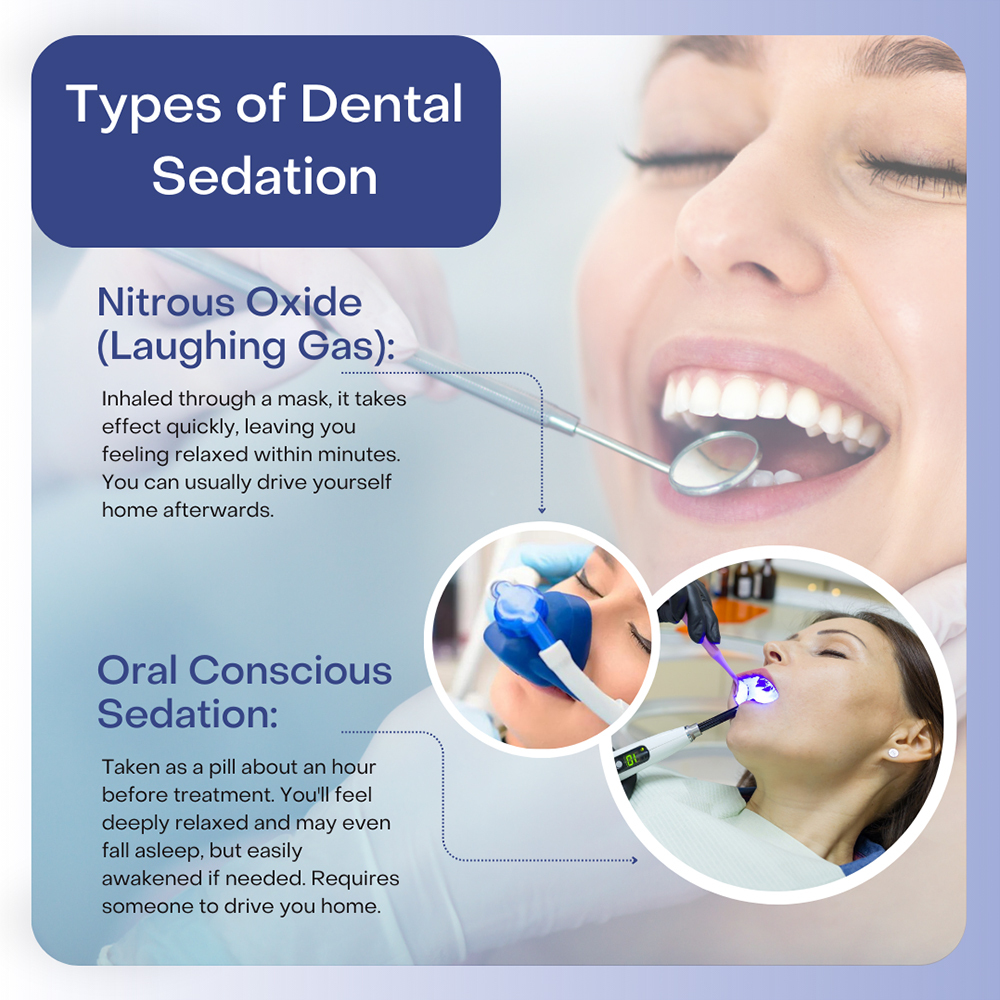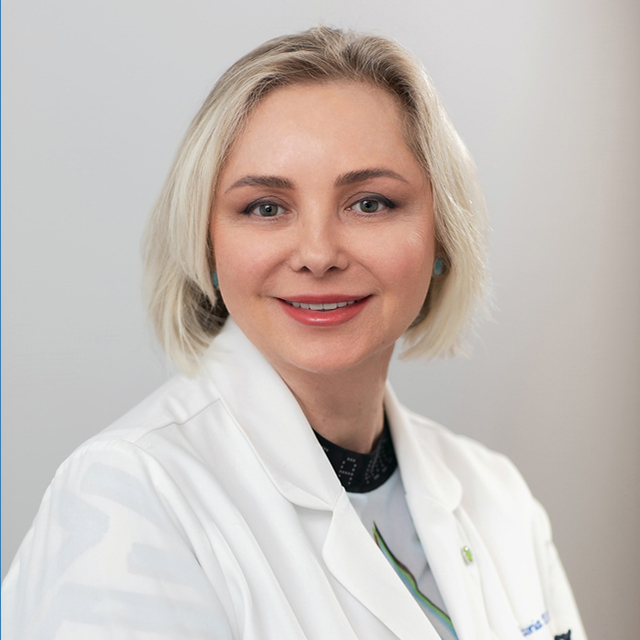Table of contents
There are many reasons why dental sedation is worth considering. Some are outlined below.
Sedation dentistry is a practical solution for anyone with dental fears who would otherwise feel uncomfortable receiving dental treatment or avoid seeing a dentist altogether.
Certain procedures take time to complete, and sitting quietly in the chair for long periods can become uncomfortable. Sedation dentistry helps patients relax and receive dental care comfortably. It can also mean we can complete more work in a single appointment, restoring oral health more quickly.
Some people find it very uncomfortable to tolerate dental treatment due to a strong gag reflex. They can receive dental care comfortably without triggering this reflex with sedation dentistry.
Young children or people with special needs or certain medical conditions may be unable to understand that they need to sit still to receive dental care safely. Sedation dentistry helps calm them so they feel relaxed enough to sit still.
Even a simple dental cleaning can feel uncomfortable for some people with more sensitive teeth and gums and who have a lower pain threshold for discomfort. Dental sedation helps ensure the experience is more comfortable.
Various types of sedation dentistry can be used depending on your requirements. Every treatment is customized to provide the correct level of sedation, ensuring you feel as relaxed and comfortable as possible. The most commonly used dental sedatives are nitrous oxide and oral conscious sedation.

Nitrous oxide, or laughing gas, is inhaled through a small, comfortable mask fitting over your nose. It takes effect quickly so you will feel more relaxed within just a few minutes.
Our dentist controls the amount of sedation you receive right throughout your procedure. Once treatment is complete, we may switch to giving you pure oxygen. This helps eliminate the nitrous oxide more quickly from your body. Laughing gas is the only dental sedative where you can safely drive yourself home afterward.
Oral conscious sedation is given in the form of a pill about an hour before your treatment begins. Commonly used sedatives include triazolam, Lorazepam, and zaleplon. If a child needs an oral sedative, this may be given as a liquid and in a form that is safe for them.
Once the oral sedation takes effect, you should feel deeply relaxed and even quite sleepy, depending on the dosage. Some people will fall asleep but can still be easily awoken if we need to check they are okay. You will need someone with you to drive you home after oral conscious sedation.
Other types of sedation dentistry can be used, offering a deeper level of sedation. One is intravenous or IV sedation.
Intravenous sedation is given through an IV line in the back of your hand or the crook of your arm. During treatment, your heart rate, oxygen levels, and blood pressure are continuously monitored, and the sedation level can be adjusted at any time. If necessary, reversal medications can be used.
Many people who receive IV sedation are so deeply relaxed that they fall asleep, so you may hear this called sleep dentistry or twilight dentistry. The sedative contains an amnesiac, so you most likely would have little or no memory of treatment. IV sedation can be ideal for anyone with severe dental anxieties or who needs to undergo a lengthier treatment, for example, a complex dental implant procedure.
General anesthesia, where you are unconscious during treatment, is occasionally used in dentistry. It may be appropriate when treating teeth of young children or people with special needs and is usually given in a hospital setting. General anesthesia must be provided by a dentist or another medical professional with advanced and highly specialized training. Usually, this is a dental anaesthesiologist.
If you are interested in sedation dentistry, talk it over with our dentist during your initial consultation. We must review your oral and medical history and will need to know about any medications or supplements you are currently taking. We must know about any medical conditions in case these could affect your suitability for sedation dentistry.
Once we have this information, we can recommend a suitable level of sedation based on your needs. We want to ensure you remain relaxed and comfortable during your appointment, but your safety is our primary concern.
We will also discuss how to prepare for your appointment. Usually, we will need you to stop eating or drinking anything several hours beforehand; otherwise, any preparations should be minimal.
Unless discussed otherwise, you should continue to take all medications as prescribed. However, if you take blood thinners, make sure we know, as we may need to adjust your treatment plan or ask you to stop taking these medications for a day or two before your treatment, depending on the advice given by your primary healthcare provider.
You can receive your dental sedative before the procedure begins so that you will already feel comfortable when we can numb your teeth and gums. We monitor you carefully throughout the procedure, continually checking that you are okay. Once treatment is complete, we may want you to remain with us a short while afterward to ensure you are fully recovered before we send you home to rest.
Sedation dentistry should be safe, but any anesthetic always carries a small risk. We take every precaution to minimize these risks, which can include:
It is rare, but some people can have an allergic reaction to the medications used in sedation dentistry. When this is the case, there are drugs that can be used to counteract the effects.
If you are pregnant, we will not recommend sedation dentistry as there is a risk that some sedatives could affect the development of the baby. Nitrous oxide can be given during the second trimester. However, unless treatment is urgent and likely to affect your health or your baby’s health, we would prefer to wait until your baby is born.
Recovery times depend on the sedative used. If you have laughing gas, you should recover completely within half an hour and can drive yourself home. You can return to normal activities after you leave our dental office.
If you have oral sedation or IV sedation, you need to allow a full 24 hours for recovery, and you cannot drive, operate machinery, or make any important or legal decisions. You should wait at least one complete day before returning to work, although some people may need longer. During your consultation, we can advise how long you might need to recover after sedation dentistry.
The cost depends on your chosen form of sedation. Nitrous oxide and oral sedation are very affordable, but intravenous sedation costs more since it is a more complex treatment. We can provide an estimate of the cost during your initial consultation. Dental insurance may not cover the cost of sedation dentistry since, despite its benefits, it is not considered essential.
Sedation dentistry can be useful for anyone who feels anxious or nervous about receiving dental care or who may have avoided seeing a dentist for years. It can help restore good oral health more quickly. Receiving dental care more comfortably can be an important step in conquering dental fears and phobias.
If you have avoided seeing a dentist due to dental anxieties, please contact us for kind, compassionate, and nonjudgemental dental care. We’ll take the time to listen to your concerns and tailor your treatments so you can receive them in a way that is more comfortable and easier to tolerate.

My name is Victoria Kushensky. I am a general dentist dedicated to remaining at the forefront of my field. Combining compassionate care with extensive knowledge, I offer cosmetic and general dentistry services as well as advanced root canal treatments.
I earned my Doctor of Dental Surgery (DDS) degree from the esteemed New York University College of Dentistry. Throughout my career, I have honed my skills in various dental procedures, ensuring effective treatment for each patient’s unique needs. I prioritize patient comfort and understanding, taking the time to thoroughly explain procedures and address any questions.
More about Dr. KushenskyMy NJ Dentist: Victoria Kushensky, DDS
385 Prospect Ave Suite 304
Hackensack, NJ 07601
(201) 298-8000